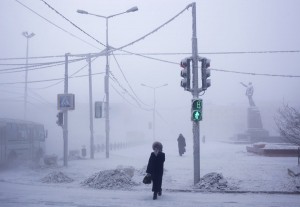
In a December 2014 article titled: Viewing Russia from the Inside by George Friedman, the founder and CEO of the geopolitical intelligence firm Stratfor, (which is also known as the shadow CIA), Friedman details Russia’s ability to “endure things that would break other nations” as well as noting that “Russians don’t respond to economic pressure as Westerners do”:
“Russians’ strength is that they can endure things that would break other nations… Therefore, the Russians argued, no one should expect that sanctions, no matter how harsh, would cause Moscow to capitulate…. It would explain why the increased sanctions, plus oil price drops, economic downturns and the rest simply have not caused the erosion of confidence that would be expected. Reliable polling numbers show that President Vladimir Putin is still enormously popular. Whether he remains popular as the decline sets in, and whether the elite being hurt financially are equally sanguine, is another matter. But for me the most important lesson I might have learned in Russia — “might” being the operative term — is that Russians don’t respond to economic pressure as Westerners do.”
The characteristics of the Russian state and the Russian people mean that imposing sanctions on the nation fails to have the effect the aggressor desires. The effectiveness of placing sanctions on Moscow was the topic of an article written by Clifford G. Gaddy and Barry W. Ickes for the Washington based thinktank, the Brookings Institution, titled: Can Sanctions Stop Putin? Gaddy and Ickes write:
“The motivation for sanctions is to impose hardship in order to change behavior. But the likelihood that this would apply to Russia is very weak. History tells us that Russians can endure enormous hardship. Coping and survival are part of Russian history and the Russian national identity. We do not need to go back to dramatic events like the Siege of Leningrad in World War II to understand that Russians can survive difficult situations. Less than two decades ago, during the 1990s, Russia suffered one of the biggest negative economic shocks ever by a country in peacetime. National and household incomes dropped by at least 40 percent. That experience shows that Russia’s households and enterprises can endure significant dislocation thanks to bottom-up, informal mechanisms of mutual help and self-survival.”
The article continues to detail how Russia is much stronger than it was in the 1990’s partly due to Moscow’s low government foreign debt and high foreign exchange reserves. Gaddy and Ickes also interestingly note in their June 2014 piece that to weaken Russia’s position further would “require drastic reductions [in] the world oil price”, shortly before the US and Saudi Arabia orchestrated the free-fall in world oil prices.
Despite sanctions and the engineered lowering of the oil price designed to weaken Moscow’s resolve, Russia has responded to the economic warfare in a different manner than what was intended by the Western elite. The pressure on the country has worked to galvanize the Russian spirit as oppose to eviscerate it, in what F. William Engdahl dubbed a “renaissance”. History has shown us time and time again the resolve of the Russian people when confronted with hardship. Russia in the 21st century is by no means the exception to the rule.
Steven MacMillan is an independent writer, researcher, geopolitical analyst and editor of The Analyst Report, especially for the online magazine “New Eastern Outlook”.
